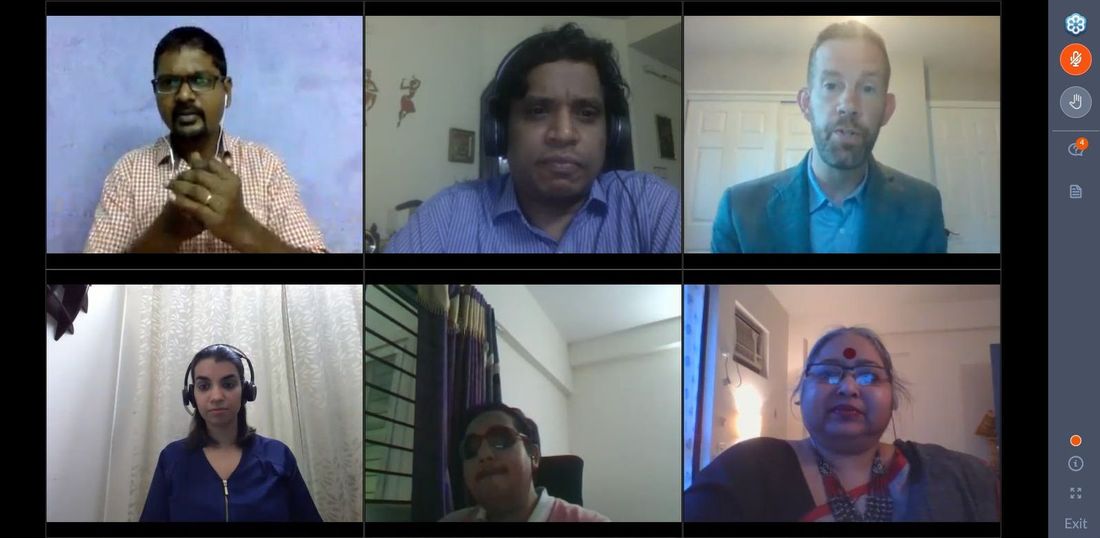
As the pandemic spread, work-from-home became the norm — a sudden shift for both the employers and the employees, including persons with disabilities — giving little time to adapt and accommodate the diverse needs of all staff. Leadership across sectors is grappling with, among other things, the impact of the new workflows and setups on especially those who are more vulnerable. Over the past few months, many offices have come up with ways to address specific gaps by assisting and empowering persons with disabilities. The ICRC in collaboration with v-shesh — a Chennai-based social impact enterprise — organised a webinar on 23 June 2020 to underscore good practices and initiatives that have been adopted by many in this direction.
Through the webinar, representatives from leading corporates and international organisations shared best practices for an inclusive and sustainable approach to ensure smooth workflows and well-being of employees with disabilities. They also shared insights on the measures being taken to ensure colleagues with disabilities have access to basic needs at the workplace. The platform provided a timely opportunity to many in the disability space to reach out to potential partners for guidance and support in order to meet the evolving needs. It also created awareness on the range of initiatives and steps that can be taken to tide over the pandemic.
P Rajasekharan, co-founder, v-shesh, moderated the panel, which included Dr. Sreela Das Gupta, global lead for disability and neurodiversity at TATA Consultancy Services Pvt. Ltd, Jess Markt, disability & sports inclusion advisor, ICRC, Meha Grover, chief operating officer for technology infrastructure verticle, Societe Generale, and Rakesh Paladugula, product manager for accessibility at Adobe. The webinar was interpreted live in the Indian Sign Language.
“It is important for managers to keep asking persons with disabilities what they need that they are not getting at present. And to learn from them, because you can’t find a group of people more accustomed to figuring out solutions to difficult day-to-day problems than the disability community,’’ Markt pointed out, emphasising the need to work with and not for persons with disabilities to come up with solutions.

Panellists spoke not only about challenges and adjustments of working remotely, but also deliberated on steps to ensure overall wellbeing of persons with disabilities and the need to identify early warning signals. It was also highlighted that lessons learnt from the resilience of employees with disabilities will be vital in enabling everyone to cope with the difficult times.
Sreela said, “Every day, we see a new learning. People are trying out new platforms to hold meetings that can be made accessible. We are living in a new normal and it will only get better with advancements.”
Talking about software that is no longer available to employees during work-from-home, Grover said, “It is a challenge for the visually impaired and deaf as they were using software installed in the office work stations that are not available to many of them at home. It is a time for all of us to come together and co-create solutions and not be alone in this. We must convert this crisis into an opportunity to develop long-term solutions for all.”
Calling on everybody to work towards an inclusive work environment, Paladugula said, “Web is for everyone and access to it, regardless of disability, is an essential aspect. Let us make sure digital content is accessible to all.’’
Read more about COVID-19 and its impact on persons with disabilities:

